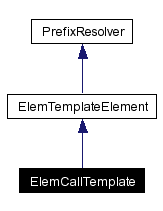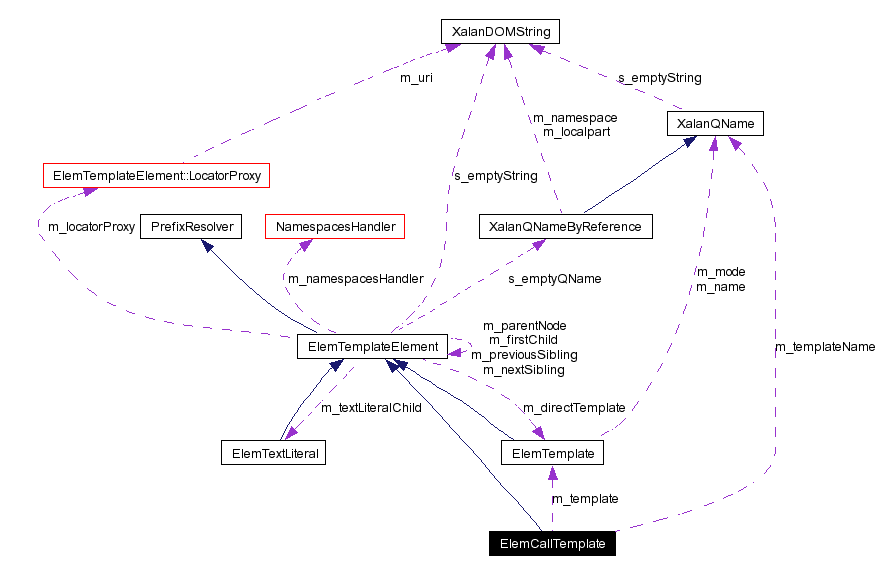
#include <ElemCallTemplate.hpp>
Inheritance diagram for ElemCallTemplate:


|
|
Construct an object corresponding to an "xsl:call-template" element.
|
|
|
|
|
|
Given an xsl token type, determine whether or not a child of that type is allowed. This is so derived types can determine whether a particular type of child is allowed for the instance. It is called from appendChildElem(). The default is to allow no types (no children)
Reimplemented from ElemTemplateElement. |
|
|
Completes "post-processing" afer any sub-elements are invoked (i.e. children, attribute sets and templates). If there are no sub-elements it does nothing
Reimplemented from ElemTemplateElement. |
|
|
Get a string for the name of the element. Useful for debugging purposes, and error reporting.
Reimplemented from ElemTemplateElement. |
|
|
Returns the first sub-element (i.e. children, attribute-sets, templates) to execute.
Reimplemented from ElemTemplateElement. |
|
|
Returns the next sub-element (i.e. children, attribute-sets, templates) to execute.
Reimplemented from ElemTemplateElement. |
|
|
|
|
|
Called after construction is completed.
Reimplemented from ElemTemplateElement. |
|
|
Completes "pre-processing" before any sub-elements are invoked (i.e. children, attribute sets and templates). If there are no sub-elements it executes the primary function of the element.
Reimplemented from ElemTemplateElement. |
Doxygen and GraphViz are used to generate this API documentation from the Xalan-C header files.
|
Xalan-C++ XSLT Processor Version 1.10 |
|
|